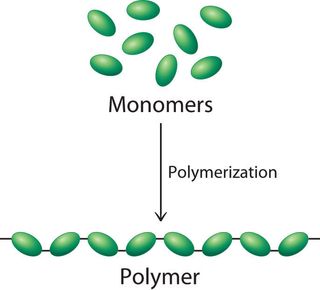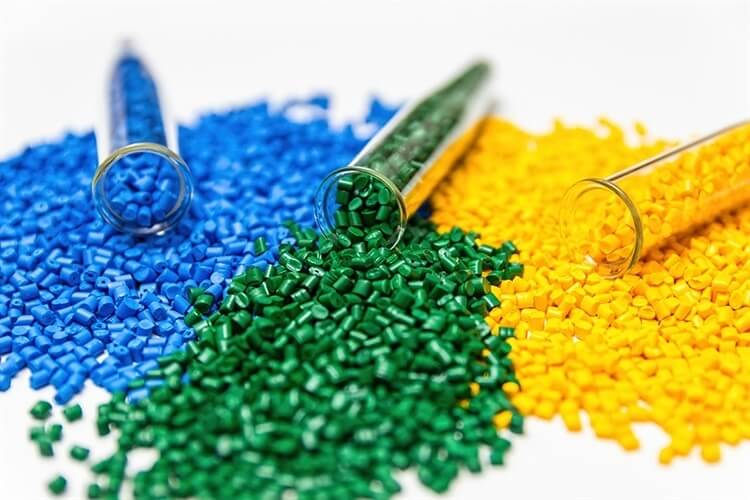Lasting Polymers: Eco-Friendly Solutions for the Future
Lasting Polymers: Eco-Friendly Solutions for the Future
Blog Article
Checking Out the Varied Applications and Advantages of Polymers in Different Industries
Polymers, with their diverse array of residential or commercial properties and functionalities, have actually ended up being important in various markets, each enjoying unique advantages from their application. From improving safety and security and performance in the vehicle market to transforming medical gadgets in the health care industry, polymers play a pivotal duty.
Automotive Sector Applications
Polymers play a critical duty in improving the efficiency and toughness of various elements within the automobile market. These versatile materials are thoroughly utilized in the manufacturing of different components, ranging from indoor parts to under-the-hood applications. One popular usage of polymers in the automotive market remains in the manufacturing of lightweight parts. By replacing conventional steel get rid of polymer-based alternatives, cars can attain better fuel effectiveness without compromising on toughness or safety and security.

Healthcare Industry Advantages
In different medical care applications, the benefits of making use of polymers are extensively recognized for their varied range of advantageous residential or commercial properties. Polymers play a critical duty in the medical care sector as a result of their convenience, biocompatibility, and cost-effectiveness. One of the primary benefits of polymers in medical care is their capacity to be customized to details requirements, such as flexibility, sturdiness, and biodegradability, making them suitable for a wide variety of clinical applications.
Polymer-based products are thoroughly utilized in medical devices, such as catheters, implants, prosthetics, and drug distribution systems, as a result of their biocompatibility and capability to simulate all-natural tissues. These products can lower the danger of allergies or beings rejected, enhancing patient safety and results. Additionally, polymers are lightweight, making them suitable for wearable clinical gadgets and making sure client comfort.
Additionally, polymers enable the development of ingenious treatment techniques, such as hydrogels for tissue design and nanocomposites for targeted medication distribution. Their ease of handling and sanitation makes them necessary for preserving high standards of hygiene in medical care settings. On the whole, the diverse benefits of polymers contribute significantly to improvements in medical technology and patient care.
Ecological Advantages of Polymers

In addition, polymers can contribute to energy savings because of their lightweight nature. In markets such as transport, lightweight polymer materials can help in reducing gas intake and greenhouse gas exhausts. In addition, polymers can enable the development of energy-efficient products such as insulation materials that boost power preservation in structures.
In addition, polymers play a vital duty in lowering water air pollution. The use of polymer-based filtration systems can properly remove toxins and impurities from wastewater, securing water resources and communities. Overall, the ecological advantages of polymers make them beneficial assets in advertising sustainability and environment-friendly methods across numerous markets.
Polymers in Electronic Devices and Innovation
Considering the increasing need for ingenious and sustainable options in contemporary sectors, the combination of advanced polymer modern technologies in the world of electronics and modern technology has become a pivotal method for driving efficiency and efficiency. Polymers have revolutionized the electronic devices industry by allowing the production of lighter, Learn More Here extra versatile, and resilient digital devices. From smart devices to medical devices, polymers play a vital role in boosting product style and functionality.
One considerable benefit of polymers in electronic devices is their protecting residential properties, which help secure delicate electronic elements from environmental elements and electric disturbance. In addition, polymers are important in the growth of versatile display screens, wearable technology, and printed electronic devices, supplying unlimited possibilities for developing wise and interconnected gadgets.
In addition, using polymers in digital product packaging has led to developments in miniaturization and thermal management, enhancing the general efficiency and integrity of digital systems. As technology continues to progress, the convenience and versatility of polymers will unquestionably drive additionally innovation in the electronics industry, shaping the future of technology.
Function of Polymers in Construction and Facilities
Polymers provide numerous advantages in the building and construction industry due to their convenience, durability, and cost-effectiveness. One vital function of polymers in construction is their usage in finishings and sealers, giving security against ecological elements such as moisture, UV radiation, and deterioration.
Furthermore, polymers play an important role in lasting construction practices by making it possible for the development of energy-efficient frameworks. Shielding materials made from polymers help control interior temperatures, lowering the need for heating and cooling systems and ultimately reducing energy usage. check out this site The usage of polymer-based composites in facilities projects such as bridges and roadways enhances their durability and lowers maintenance costs. Generally, the consolidation of polymers in building and construction and infrastructure displays their substantial effect on modern-day engineering methods.
Conclusion
In verdict, polymers play an important function in numerous sectors such as automotive, healthcare, environmental, electronics, and building and construction. Their functional residential properties make them important in producing ingenious services and items. From boosting gas performance in vehicles to enhancing clinical gadgets, polymers provide various advantages. Furthermore, their effect on minimizing waste and advertising sustainability highlights their value in contemporary applications. The extensive use of polymers shows their significant payment to progressing innovation and enhancing lifestyle.
Report this page